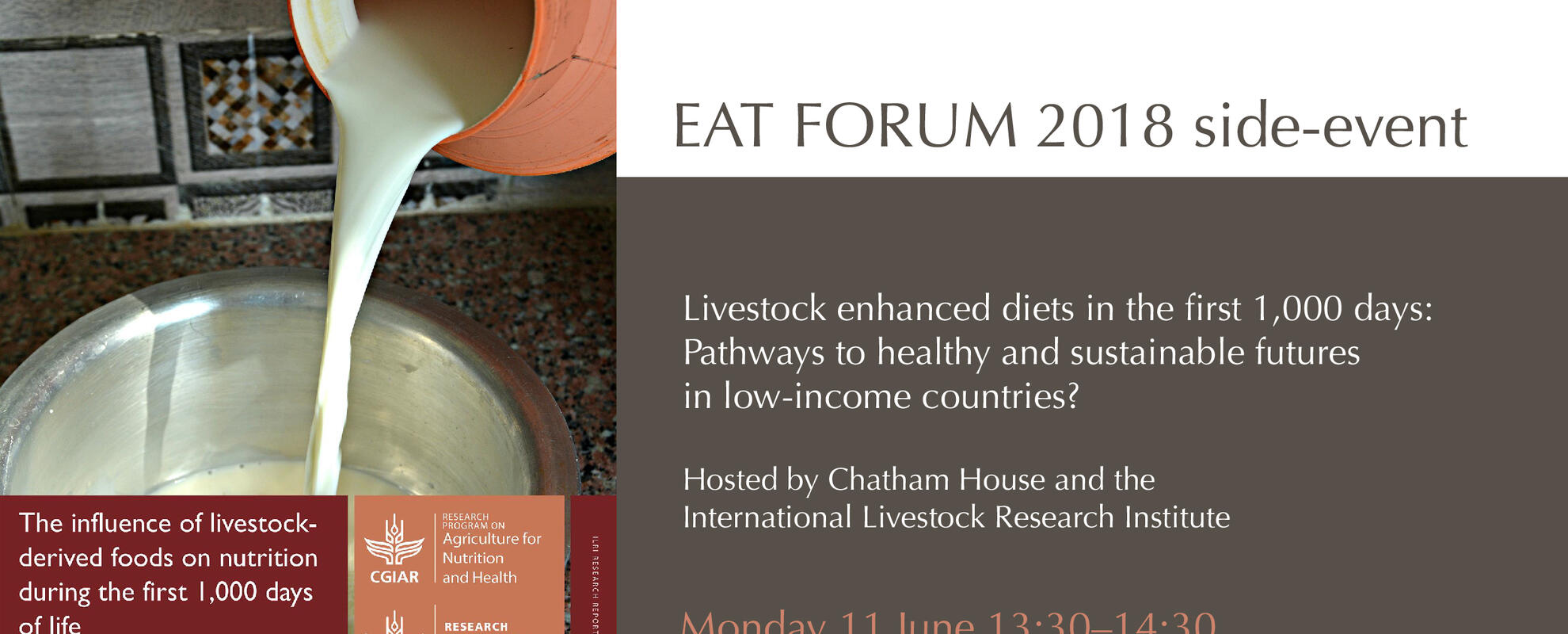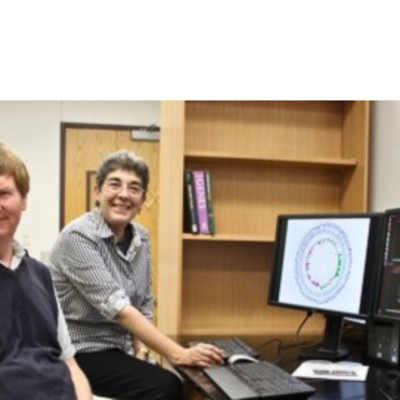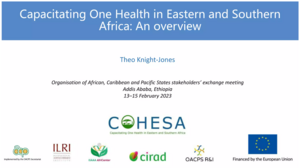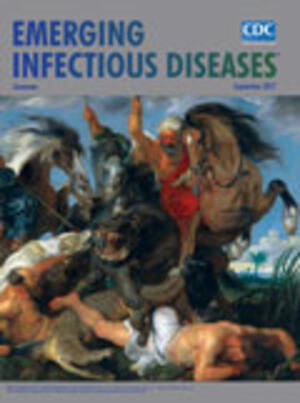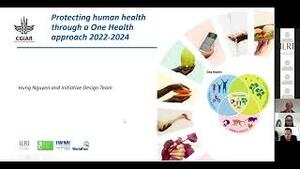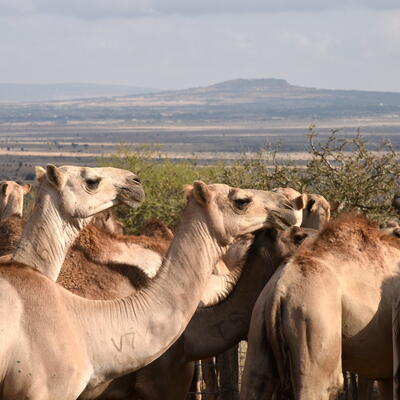
Can livestock-enhanced diets of the poor in the first 1,000 days of life lead to healthy and sustainable futures?
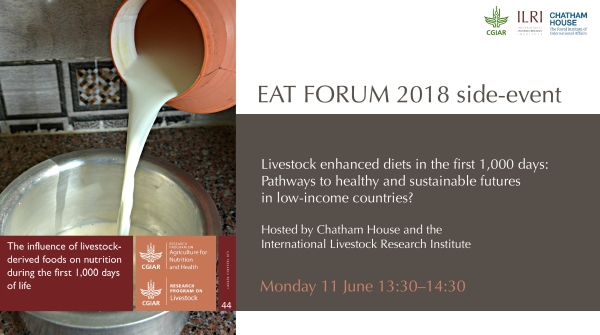
This year’s EAT 2018 Stockholm Food Forum (11–12 Jun 2018) explores ways to achieve healthy and sustainable diets for a growing global population.
On Monday, 11 Jun 2018, Chatham House and the International Livestock Research Institute (ILRI) will host a side event around the findings of an evidence review on the influence of livestock-derived foods—meat, milk and eggs—on the nutrition of women and of children during their first 1,000 days of life, from conception to age two.
Tough choices
This discussion at the EAT Forum on which diets are healthy and sustainable will be informed by the specific nutritional needs of pregnant women and their infants in low- and middle-income countries.
This issue poses particularly tough challenges. Health and environmental choices ’for the planet’ are not necessarily the best ones for poor rural households and communities where both economic opportunities and food choices are severely limited.
This session will explore one specific tough challenge: How can our agri-food systems best meet the needs of people in poor countries at a key moment in their lives—during the first 1,000 days of a child’s life—without compromising other societal goals?
Can we ensure appropriate levels of consumption of meat, milk and eggs by many poor people during nutritionally critical periods in their lives without compromising the goals of many rich people to reduce their over-consumption of these foods?
Can smallholder livestock farmers and herders, and the diverse livestock systems they employ, be recognized as assets rather than hindrances to the global food and health systems?
Can we fight for affordable and accessible food and for equitable and sustainable food systems?
Discuss/debate three questions
The Chatham-ILRI session discussion will start with the results of the research review and look to answer three main questions:
- What impacts do livestock-derived foods have on the nutrition of children during their first 1,000 days?
- How do livestock interventions contribute to nutrition outcomes in the first 1,000 days?
- What are the health and environmental side effects and risks of consuming livestock-derived foods in the first 1,000 days?
Join this session to hear what the research evidence is, to ask questions and to discuss promising ways to meet the nutritional, health and development needs of infants in their first 1,000 days of life without compromising the planet’s health.
Get more information
- Nabila Shaikh: nshaikh@chathamhouse.org
- Silvia Alonso: s.alonso@cgiar.org
- Mats Lannerstad: research@lannerstad.com
Download the full report
D Grace, P Dominguez-Salas, S Alonso, M Lannerstad, E Muunda, N Ngwili, A Omar, M Khan and E Otobo, 2018. The influence of livestock-derived foods on nutrition during the first 1,000 days of life. ILRI Research Report 44. Nairobi, Kenya: ILRI.
Read related news
Meat, milk, eggs can make a big difference in the first 1,000 days of life in low-income countries—New report, ILRI News blog, 4 Jun 2018.
Why milk, meat and eggs can make a big difference to the world’s most nutritionally vulnerable people, ILRI News blog, 4 Jun 2018.





